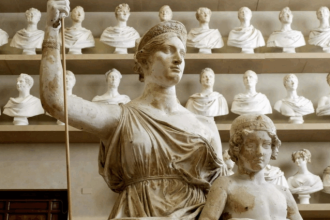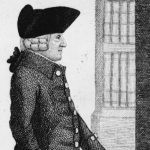Br. Barnabas Wilson
The Psalmist has some harsh words for idols, those who make them, and those who worship them.
They have mouths, but do not speak;
eyes, but do not see.
They have ears, but do not hear;
noses, but do not smell.
They have hands, but do not feel;
feet, but do not walk;
and they do not make a sound in their throat.
Those who make them are like them;
so are all who trust in them. (Ps 115:5-8)
The Psalmist, enlightened by the Holy Spirit, tells us a deep truth—not just about idols, but about ourselves. Not only are idols, these statues or figures, unable to speak, see, hear, smell, feel, walk, or talk—but so are all who trust in them. Those who pray to idols and trust in them take on the qualities of those idols. Why?
According to Aristotle’s famous formulation, the mind is, in a way, all things. He sees a connection between physical sight and mental understanding. When we see something, the color and shape of what we see physically changes us. If I go into a yellow room, my sight becomes yellow. Similarly, when I understand something, my mind, in a certain way, becomes that thing!
Say I am reading The Lord of the Rings. The words give me the details: Frodo and Sam are in Mordor, and they’re beginning their final ascent of Mount Doom. But, we can ask, when I read, where does the story unfold? Is it on the pages only, or is it also in my mind? It is both! As incredible as it may sound, Aristotle’s idea means that my mind has taken in and, in a certain sense, become the story. This leads to the widespread complaint often heard about film adaptations of books—it’s just not the same as I imagined it. » Read More
https://theimaginativeconservative.org/2025/04/what-you-worship-idol-barnabas-wilson.html
Have an existing account?
Sign In
© 2024 Paperless Times






